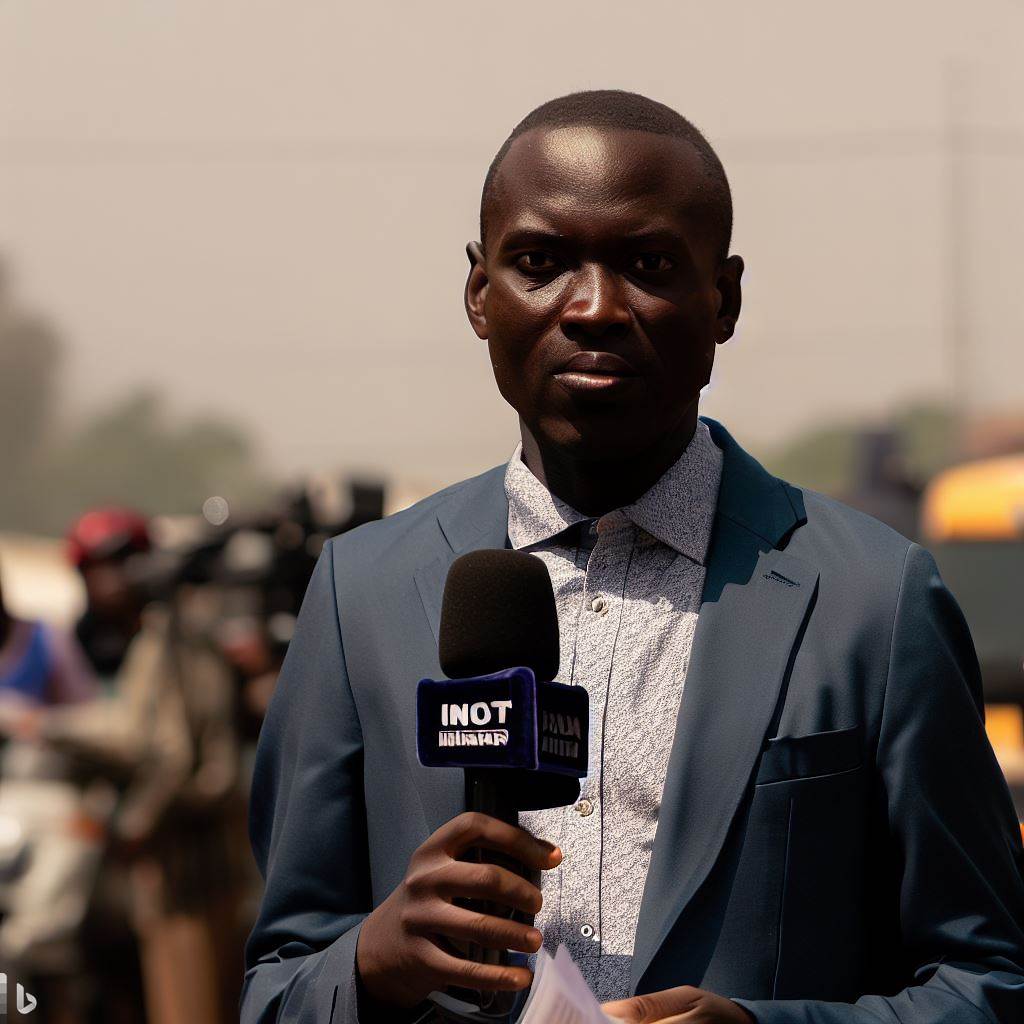Introduction
Background information on Nigeria’s free speech and reporting landscape
Nigeria, located in West Africa, is a country known for its vibrant democracy and diverse population.
However, like many other nations, it faces challenges in balancing the freedom of speech with responsible reporting.
Importance of balancing free speech and responsible reporting
Free speech is a fundamental right that allows citizens to express their opinions, participate in public discourse, and hold those in power accountable.
However, this right must be exercised responsibly to avoid misinformation, hate speech, and the incitement of violence.
In Nigeria, achieving a balance between free speech and responsible reporting is crucial for several reasons.
Firstly, it promotes a healthy and informed public debate, fostering an environment where diverse perspectives can be heard and respected.
Secondly, responsible reporting helps to maintain social cohesion and prevent conflicts that may arise from misinformation or inflammatory rhetoric.
Moreover, responsible reporting reduces the risk of societal divisions, discrimination, and violence by ensuring accurate and fair coverage of events.
It enhances the credibility and trustworthiness of the media, leading to an informed citizenry that can make well-informed decisions.
By striking a balance between free speech and responsible reporting, Nigeria can strengthen its democracy and create a more inclusive and tolerant society.
In the following sections, we will delve deeper into the challenges faced in achieving this balance, explore the implications of unregulated speech and irresponsible reporting, and propose strategies to ensure free speech and responsible reporting coexist harmoniously in Nigeria.
Free Speech in Nigeria
Overview of the concept of free speech
- Free speech is a fundamental right that allows individuals to express their opinions openly.
- It is crucial for a democratic society as it encourages public debate and the sharing of diverse ideas.
- Free speech fosters transparency, accountability, and the exchange of information among citizens.
- It is a vital tool for social progress, as it enables the exposure of wrongdoing and the demand for change.
- However, the concept of free speech also comes with responsibilities, as it should not promote hate speech or harm others.
Legal protections for free speech in Nigeria
- The Nigerian Constitution guarantees freedom of expression and the press under Section 39.
- Freedom of speech allows citizens to freely express their opinions and thoughts without fear of persecution.
- The Press Council Act and the National Broadcasting Commission Act protect the rights of journalists and media organizations.
- These legal provisions aim to promote open dialogue, facilitate effective journalism, and uphold the public interest.
- The Nigerian government also ratified international treaties that recognize and protect freedom of speech.
Challenges and limitations to free speech in Nigeria
- Nigeria has experienced limitations on free speech due to political, cultural, and religious factors.
- Government censorship, harassment, and intimidation of journalists have been prevalent issues.
- The Cybercrime Act of 2015 has been criticized for restricting freedom of expression online.
- Hate speech, fake news, and misinformation have posed challenges to free speech as they can incite violence and social unrest.
- Instances of self-censorship among journalists and media organizations also exist due to fear of reprisals.
In essence, free speech is a crucial aspect of Nigerian society as it facilitates open dialogue, promotes accountability, and enables progress.
While legal protections exist, challenges and limitations to free speech persist.
Government censorship, harassment of journalists, restrictive legislations, and the spread of hate speech are ongoing concerns that need to be addressed.
Upholding free speech requires striking a delicate balance between allowing open expression and ensuring responsible use of this fundamental right.
Reporting in Nigeria
Role of the media in Nigerian society
- The media plays a crucial role in Nigerian society by providing information to the public.
- It serves as a watchdog, ensuring transparency and accountability in the government.
- The media acts as a platform for citizens to voice their concerns and opinions, promoting democracy.
- Journalists in Nigeria strive to expose corruption, human rights abuses, and other societal issues.
Importance of responsible reporting
- Responsible reporting is vital for maintaining credibility and trust with the Nigerian public.
- Media organizations must fact-check information before sharing it to avoid spreading misinformation.
- Objective reporting is crucial to ensure fair representation and avoid biased narratives.
- Sensationalism and yellow journalism should be avoided to maintain public trust.
Ethical considerations for journalists in Nigeria
- Journalists must abide by a code of ethics that promotes accuracy, fairness, and impartiality.
- Protecting the privacy and anonymity of sources is essential, especially in sensitive or controversial topics.
- Journalists should disclose conflicts of interest that may influence their reporting.
- Respect for cultural and religious sensitivities is necessary to avoid offending the diverse Nigerian population.
Balancing Free Speech and Responsible Reporting
The need for a balance between both concepts
Free speech and responsible reporting are two essential pillars of a democratic society.
While free speech ensures the expression of thoughts and ideas without censorship, responsible reporting ensures the dissemination of accurate and unbiased information to the public.
However, striking a balance between these concepts is crucial to maintain harmony and prevent any negative consequences.
Ideal approach to balancing free speech and reporting
To achieve a balance between free speech and responsible reporting, certain principles and practices can be implemented.
First and foremost, media organizations should adhere to ethical guidelines that prioritize accuracy, objectivity, and impartiality.
Journalistic integrity plays a vital role in informing the public while respecting the rights of individuals to express their opinions freely.
Furthermore, clear regulations can be established to avoid the spread of hate speech, misinformation, and defamation.
These regulations should be carefully crafted to ensure they do not infringe upon the freedom of expression but hold individuals accountable for harmful or false information.
It is essential to strike a balance where free speech is protected, but irresponsible reporting is discouraged.
Collaboration between media organizations, journalists, and regulatory bodies is crucial in maintaining this delicate balance.
Ensuring transparency and accountability within the industry will help build public trust and confidence, which is paramount in a democratic society.
Examples of successful practices in Nigeria
Nigeria, as a diverse and vibrant democracy, has been striving to strike a balance between free speech and responsible reporting.
Several successful practices have emerged to achieve this delicate balance.
- Self-regulation: News organizations in Nigeria, such as the Nigerian Press Council, have established self-regulatory mechanisms.
These mechanisms promote ethical practices, handle complaints, and ensure the media operates within legal and professional boundaries. - Media literacy: The Nigerian government, alongside civil society organizations, has focused on promoting media literacy among the public.
By educating individuals on how to critically evaluate and verify information, they can better discern between accurate reporting and misinformation. - Fact-checking initiatives: Independent fact-checking organizations and campaigns have emerged in Nigeria to combat the spread of false information. These initiatives play a crucial role in holding media organizations accountable and promoting responsible reporting.
- Engaging with stakeholders: Open dialogues and collaborations between media organizations, journalists, civil society, and regulatory bodies have proven effective.
By actively involving all stakeholders, inclusive policies and practices can be developed that address the concerns of diverse groups while ensuring freedom of expression.
These examples showcase the ongoing efforts in Nigeria to strike a balance between free speech and responsible reporting.
However, challenges still exist, such as political interference, censorship attempts, and the need for continuous improvement in media ethics and professionalism.
In short, finding a balance between free speech and responsible reporting is essential for the smooth functioning of a democratic society.
By adhering to ethical guidelines, implementing clear regulations, and fostering collaboration among stakeholders, Nigeria has made strides towards achieving this balance.
However, it is an ongoing process that requires continuous commitment and improvement to uphold the principles of free speech and responsible reporting in the dynamic media landscape.
Read: How to Become a Successful Mixing Engineer in Nigeria

Challenges and Controversies
Tensions between free speech and national security issues
- The Nigerian government often faces the challenge of striking a balance between protecting free speech and maintaining national security.
- In its efforts to combat terrorism and insurgency, the government may impose restrictions that limit freedom of expression.
- These tensions arise because certain speech acts, such as spreading extremist ideologies or inciting violence, can pose a threat to national security.
- However, there is a fine line between protecting national security and infringing upon citizens’ rights to free speech.
- Striking a balance requires careful consideration of the potential consequences and impact of restrictions on segments of society.
Impact of hate speech and incitement on public safety
- Hate speech and incitement can have severe consequences, leading to violence, discrimination, and social unrest.
- Nigeria has a diverse population, consisting of various ethnic and religious groups, which makes it susceptible to tensions and conflicts.
- When inflammatory speeches circulate unchecked, it can inflame existing animosity between groups and escalate into violence.
- The government must address hate speech to ensure the safety and unity of its citizens.
- However, there is a challenge in determining what constitutes hate speech and where the line should be drawn between free expression and incitement.
Cases of misreporting and its consequences
- Misreporting, whether intentional or unintentional, can have significant consequences on public opinion and national stability.
- Inaccurate or misleading reporting has the potential to incite violence, amplify tensions, and damage reputations.
- The proliferation of social media platforms has made it easier for false information to spread rapidly, causing panic and confusion.
- Journalists and media organizations have a responsibility to verify their sources, fact-check information, and provide accurate and impartial reporting.
- The spread of fake news and misinformation not only undermines trust in the media but also poses a threat to the democratic process in Nigeria.
Overall, balancing free speech and reporting in Nigeria is a complex task that requires navigating various challenges and controversies.
The government must find a way to protect national security without infringing upon citizens’ rights to free expression.
Simultaneously, addressing hate speech and misreporting is crucial to ensure public safety, social harmony, and the preservation of democracy.
It is essential for stakeholders, including the government, media organizations, and citizens, to actively engage in dialogue and work collaboratively to find solutions that respect freedom of speech while safeguarding the nation’s interests.
Read: Nigeria’s Most Influential Journalists: A Profile Series
Government Regulations and Freedom of Expression
Existing laws and regulations on free speech and reporting
In Nigeria, the Constitution guarantees the right to freedom of expression and the press.
The Criminal Code Act and the Penal Code Act also address offenses related to speech.
The Nigerian Press Council Act regulates the media industry and ensures ethical journalism.
Discussion on the impact of regulations on protecting citizens’ rights
Government regulations play a crucial role in safeguarding the fundamental rights of citizens.
By holding media accountable, regulations can protect individuals from false information and harmful content.
Regulations can promote responsible reporting, ensuring citizens receive accurate and unbiased news.
Criticisms and concerns regarding government intervention
However, some are concerned that government intervention may lead to censorship and infringement of free speech.
Opponents argue that regulations could be manipulated by authorities to suppress dissent and control the media.
Censorship may hinder the transparency required for a functioning democracy and impede public participation.
In fact, government regulations have a significant impact on freedom of expression and reporting in Nigeria.
While existing laws provide a framework to protect citizens’ rights, concerns about potential abuses cannot be ignored.
Striking a balance between allowing free speech and ensuring responsible journalism remains a challenge.
It is crucial for the government to uphold the principles of a free press while avoiding the stifling of dissent and promoting civic engagement.
Read: Inside the Studio: The Life of a Nigerian Mixing Engineer
Strengthening the Balance
Achieving a balance between free speech and responsible reporting in Nigeria is crucial for the progress of the nation.
To ensure this delicate equilibrium, several steps need to be taken:
Importance of media literacy and public awareness
- Enhancing media literacy will enable citizens to critically analyze and interpret news stories.
- A well-informed public can differentiate between credible news and misinformation or propaganda.
- Media literacy education should be integrated into school curriculums to empower the younger generation.
- Public awareness campaigns can educate individuals on the importance of responsible media consumption.
- Consumers must understand their role in demanding accurate and unbiased news.
Collaboration between media organizations, government, and civil society
- Media organizations should cooperate with each other and share resources to maintain journalistic integrity.
- Partnerships with government bodies can facilitate a better understanding of regulatory frameworks and limitations.
- Consultations with civil society organizations can help establish guidelines for responsible reporting.
- Collaborative efforts can also address challenges such as fake news, hate speech, and incitement to violence.
- A united front among stakeholders can foster an environment that upholds free speech without abusing it.
Nurturing a culture of responsible reporting and promoting dialogue
- Media professionals should prioritize accuracy, fairness, and unbiased reporting in their work.
- Journalists must adhere to ethical guidelines and verify information before publication.
- Transparent corrections and retractions should be made promptly when errors occur.
- Encouraging dialogue between journalists and the public can build trust and improve media accountability.
- Journalists should actively seek diverse perspectives and provide space for all voices to be heard.
- Creating forums for citizens, media professionals, and policymakers to engage in constructive discussions enhances understanding.
- Regular training programs for journalists can instill the importance of responsible reporting and adherence to professional standards.
- Newsrooms should foster an environment that supports journalists in their commitment to the truth.
By embracing media literacy, fostering collaboration, and nurturing a culture of responsible reporting, Nigeria can achieve the delicate balance between free speech and accurate news.
This equilibrium will lead to an informed society, strengthened democracy, and a prosperous nation.
Read: The Impact of Nollywood on Sound Editing in Nigeria
Discover More: Unveiling Nigeria’s Top-Rated Make-Up Artists: A Review
Conclusion
Recap of the challenges and complexities in balancing free speech and reporting
Throughout this blog post, we have highlighted the numerous challenges and complexities involved in balancing free speech and reporting in Nigeria.
From government restrictions and limitations to societal pressures and threats, journalists and media organizations face an uphill battle in fulfilling their role as watchdogs of society.
We have discussed how Nigeria struggles with limited press freedom, with journalists often facing censorship, intimidation, and even violence.
The government’s use of legislation and regulations to control the media further compounds these challenges.
Furthermore, the rise of social media has introduced new dynamics to this balance, with the spread of fake news and hate speech posing significant challenges to public discourse and social cohesion.
The responsibility lies with both the government and the public to address these issues effectively.
Call to action for stakeholders to work towards a more balanced environment in Nigeria
In order to promote a more balanced environment for free speech and reporting in Nigeria, it is crucial that all stakeholders play their part.
The government must review and revise laws and regulations that infringe on press freedom, allowing journalists to operate without fear of persecution.
Additionally, media organizations should invest in training journalists on ethics, accuracy, and responsible reporting to mitigate the spread of misinformation and hate speech.
Collaboration between media outlets and civil society organizations can also foster a culture of accountability and transparency.
Lastly, individuals must actively engage in critical media consumption, questioning sources, and sharing verified information.
By promoting media literacy and responsible citizenship, we can collectively combat the challenges facing free speech and reporting in Nigeria.
In summary, achieving a balance between free speech and reporting in Nigeria is an ongoing process that requires collaborative efforts from all stakeholders.
By addressing these challenges head-on, Nigeria can create an environment that upholds press freedom and enables journalists to fulfill their vital role in society.




